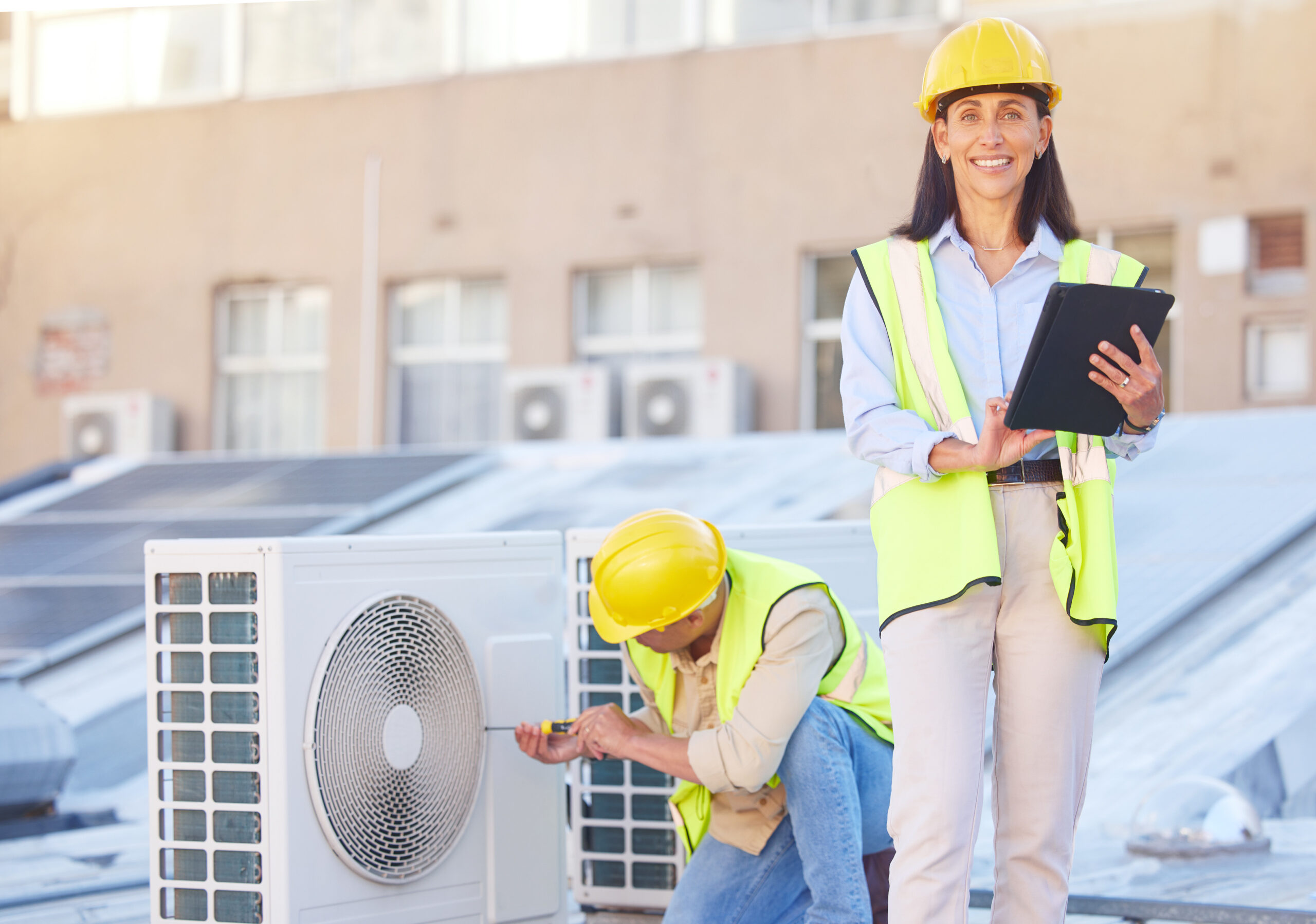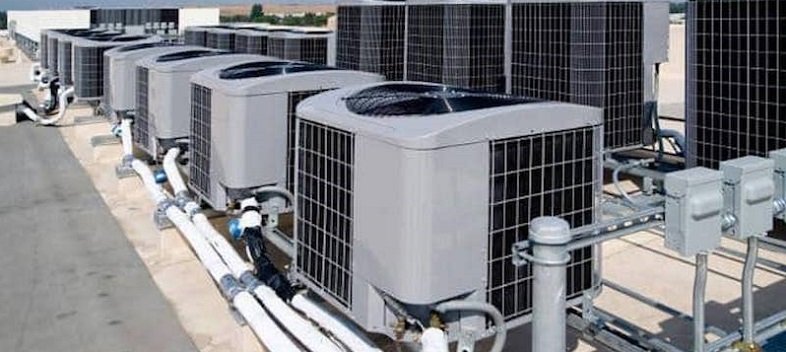Selecting Between a Heatpump and Furnace: Trick Factors To Consider for Your HVAC Needs
When assessing heating alternatives for cooling and heating requires, the decision in between a heatpump and a heating system can be complicated. Each system provides distinct benefits tailored to specific environments and energy effectiveness goals. Understanding these differences is necessary for making an educated choice. Trick variables such as setup costs and ecological influence even more make complex the selection procedure. Which option really straightens with one's comfort and sustainability choices? The complying with sections will certainly explore these factors to consider in detail.
Understanding Heat Pumps: How They Function and Their Benefits
While several home owners think about various home heating options, recognizing how heatpump function and their benefits can greatly affect their decision. Heatpump operate by transferring warmth as opposed to creating it. In the wintertime, they remove heat from the outdoors air or ground and move it indoors, while in the summer season, they reverse this process, cooling the home by eliminating heat outside. This double capability makes them flexible for year-round climate control.One of the primary advantages of warmth pumps is their power effectiveness. They utilize substantially less electrical energy contrasted to traditional heater, possibly resulting in reduced utility bills (ductless mini splits). Additionally, heatpump have a smaller sized carbon impact, making them an eco-friendly option. They additionally call for less upkeep than standard systems, adding to lasting price financial savings. Overall, understanding the mechanics and advantages of warm pumps can assist homeowners make informed choices regarding their home heating and cooling down requirements
Discovering Heaters: Types, Procedure, and Advantages
Heating systems can be found in different kinds, including gas, electric, and oil models, each with distinctive functional systems. Comprehending these distinctions is essential, as they affect effectiveness and heating efficiency. Additionally, furnaces offer numerous advantages, such as constant warmth result and integrity in colder climates.
Kinds of Heaters
Heating unit can vary considerably in layout and operation, with furnaces being a preferred option amongst home owners. There are a number of kinds of heaters, each using different fuel resources and innovations. Gas furnaces are usual, leveraging natural gas to generate warm efficiently. Electric heaters, on the other hand, utilize electrical resistance to generate warmth, commonly favored for their straightforward installment. Oil heating systems, while less usual, are efficient in locations with limited gas gain access to (heat pump service). In addition, condensing heating systems optimize energy performance by capturing and recycling exhaust gases. Each kind runs via a system of warm exchangers and ductwork to distribute cozy air throughout a home. Comprehending the differences in between these furnace types is essential for notified a/c decisions
Benefits of Heating systems
For property owners seeking trusted warmth during chilly months, the benefits of heaters are substantial. Furnaces provide constant home heating, ensuring even temperatures throughout the home. They are specifically effective in severe cool, frequently exceeding heatpump in icy conditions. Different kinds, consisting of gas, electrical, and oil heaters, supply flexibility to fulfill varied requirements and preferences.Furnaces additionally have a tendency to have reduced initial installment prices compared to warmth pumps, making them a more accessible alternative for lots of. Their robust style adds to a longer life expectancy, with several units lasting over 15 years with appropriate maintenance. Furthermore, modern heating systems are typically furnished with innovative modern technology for enhanced effectiveness, which can cause reduced energy expenses. Overall, heaters remain a reputable selection for efficient home heating.

Energy Efficiency: Contrasting Warmth Pumps and Furnaces
When contrasting power effectiveness in between heat pumps and heating systems, the Seasonal Energy Performance Ratio (SEER) plays a necessary role in determining efficiency. In addition, an operational expense analysis reveals the long-lasting economic effects of each system. Recognizing these aspects can direct house owners in making notified choices concerning their home heating services.
Seasonal Energy Effectiveness Proportion
Power efficiency plays a crucial function in the decision-making procedure between warmth pumps and heaters, especially when considering the Seasonal Power Performance Proportion (SEER) This statistics measures the cooling efficiency of warm pumps over an entire cooling period, supplying a standardized way to examine performance. Higher SEER rankings indicate higher energy performance, converting to reduced power consumption and decreased utility bills. In contrast, heaters are generally evaluated making use of the Annual Fuel Application Effectiveness (AFUE) ranking, which shows home heating efficiency. When contrasting these two systems, house owners ought to prioritize SEER rankings for heatpump, as they directly influence overall power cost savings and ecological sustainability. A complete understanding of SEER can notably influence the long-term contentment and cost-effectiveness of the chosen cooling and heating option.
Functional Expense Evaluation
Comprehending the functional expenses related to heatpump and heaters is vital for house owners examining their choices. Heat pumps typically offer greater energy effectiveness, converting electrical power right into warmth with minimal waste. This results in lower regular monthly utility expenses, particularly in modest environments. On the other hand, standard furnaces, especially gas designs, may have lower upfront expenses but can sustain higher functional costs in time due to sustain rates and effectiveness ratings.Moreover, warm pumps can function as both home heating and cooling down systems, potentially decreasing the demand for separate a/c devices. While preliminary investments for warmth pumps may be greater, their lasting savings in energy effectiveness can make them a more economical selection for numerous houses. Cautious evaluation of local power rates is necessary to figure out the best choice.
Installation Costs: What to Expect for each and every Furnace
Installment expenses for furnace can vary substantially between warmth pumps and furnaces, affecting property owners' decisions. Heatpump typically have greater about his ahead of time installation costs, typically ranging from $3,500 to $8,000, relying on the device dimension and intricacy of installation. This consists of the outside unit, interior handling system, and essential ductwork adjustments. Conversely, furnaces tend to have lower initial prices, balancing in between $2,500 and $6,000, which can be appealing for budget-conscious house owners. Installment expenditures can increase if substantial ductwork is required.Moreover, the choice of gas type for furnaces-- natural gas, lp, or electrical-- can also impact setup costs. While heatpump use energy effectiveness, their first financial investment may discourage some buyers. Eventually, evaluating installment prices along with long-term savings and effectiveness will certainly assist house owners in making educated choices about their heating unit.
Climate Factors To Consider: Which System Performs Better in Your Location
Exactly how do environment conditions influence the effectiveness of home heating systems? The efficiency of heatpump and furnaces can vary substantially relying on the regional environment. In moderate climates, heatpump succeed by successfully transferring warmth from the outside air, making them an energy-saving choice. Nevertheless, their performance decreases in very cold temperature levels, where they might have a hard time to draw out adequate heat. On the other hand, heating systems, especially gas models, provide trusted and constant warm no matter exterior problems, making them preferable in chillier regions.In locations that experience milder winters months, warm pumps can run successfully year-round, giving both heating her comment is here & cooling. In comparison, areas with rough winters usually gain from the toughness of heating systems. Ultimately, comprehending the local climate is necessary when choosing in between a warm pump and a heater, as it straight impacts their operational effectiveness and overall efficiency.
Maintenance Demands: Long-Term Look After Warmth Pumps vs. Furnaces
While both warm pumps and furnaces need regular upkeep to assure peak efficiency, their certain demands and care routines differ substantially. Heaters normally require much less regular interest, with yearly assessments being adequate to inspect for gas leaks, tidy filters, and evaluate total functionality. Their simpler design often enables straightforward repairs.In comparison, heat pumps necessitate biannual upkeep because of their dual function in heating and cooling. This includes cleaning coils, checking cooling agent levels, and ensuring that both the indoor and exterior devices work at their finest. In addition, heatpump maintenance typically entails even more elaborate parts, making expert servicing essential.Neglecting upkeep can cause lessened efficiency and raised power prices for both systems. Eventually, home owners ought to take into consideration these long-term care demands when selecting in between a warm pump and a heating system, as proactive maintenance can expand the lifespan and performance of either system considerably.
Ecological Effect: Choosing a Sustainable Heating Choice
The ecological impact of heater is a crucial examination for property owners looking for lasting alternatives. Heatpump are generally more energy-efficient than traditional heating systems, as they transfer warmth rather than produce it, significantly decreasing carbon emissions. By making use of renewable resource sources, such as air-source or geothermal heatpump, homeowners can better decrease their environmental footprint.On the various other hand, all-natural gas furnaces emit greenhouse gases and contribute to air pollution, though they commonly supply greater heat outcome. Nonetheless, improvements in technology have brought about the development of high-efficiency heaters that lessen emissions.Ultimately, choosing a heating unit includes evaluating performance versus ecological impact. House owners are urged heat pump service to review regional power resources and motivations for renewable systems, ensuring a choice that lines up with both individual comfort and environmental duty. The decision impacts not just prompt comfort yet additionally lasting sustainability and environmental health.
Often Asked Inquiries
How Much Time Do Warm Pumps and Furnaces Usually Last?
The life expectancy of heatpump usually ranges from 15 to twenty years, while furnaces can last between 15 to 30 years. Regular maintenance substantially influences their durability and effectiveness in offering home heating services.
Can I Utilize a Warmth Pump in Exceptionally Cold Climates?
Heat pumps can operate in exceptionally chilly climates, but their efficiency decreases as temperatures drop. In such conditions, supplementary home heating sources may be required to keep comfy indoor temperatures and assure peak performance.

What Is the Noise Degree of Warmth Pumps Versus Furnaces?
The noise levels of heat pumps and heaters vary significantly. Typically, heat pumps run more quietly than traditional heaters, making them better for those conscious sound, while heaters may create louder operational sounds during heating cycles.
Are Warmth Pumps Suitable for Both Heating & Cooling?
Heatpump are undoubtedly ideal for both heating & cooling (heat pump replacement ooltewah tn). They work by moving warmth, offering effective temperature control year-round, making them a versatile selection for homeowners seeking an all-in-one a/c remedy
What Dimension Heating System Do I Required for My Home?
Figuring out the suitable size home heating system for a home needs evaluating aspects such as square footage, insulation quality, regional climate, and the home's format. Consulting a specialist can ensure an exact analysis and suitable comfort. Warm pumps generally supply greater energy efficiency, converting electric power right into warm with minimal waste. In modest climates, heat pumps stand out by efficiently moving heat from the outside air, making them an energy-saving option. Alternatively, furnaces, especially gas models, provide reliable and consistent heat regardless of outside problems, making them more suitable in chillier regions.In locations that experience milder wintertimes, warmth pumps can run efficiently year-round, supplying both home heating and air conditioning. Warm pumps are generally much more energy-efficient than traditional heaters, as they transfer warmth instead than produce it, greatly minimizing carbon discharges. By using renewable power sources, such as geothermal or air-source heat pumps, house owners can better decrease their ecological footprint.On the other hand, natural gas heaters produce greenhouse gases and contribute to air contamination, though they usually provide greater warm output.